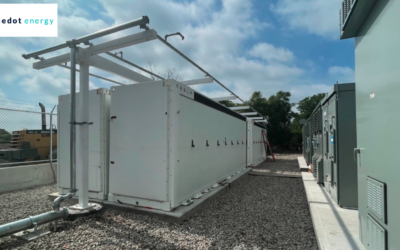The first wave of the support scheme sought to enable the deployment 20,000 grid-connected systems. Image: Sonnen.
Germany’s support programme for solar-plus-storage systems, which offers a rebate on the devices, has been officially re-launched as expected by the Federal Ministry of Economic Affairs and Energy.
The scheme, administered through the national development bank KfW, was due to expire at the end of 2015. It offered around US$635 per kilowatt-hour of storage capacity and available only when installing storage in conjunction with PV.
The incentive also only applies for electrochemical storage batteries connected to the grid, with the scheme reopening on 1 March. The ministry for economic affairs and industry (BMWi), said it has a budget of €30 million (US$33 million) for the programme until the end of 2018.
The rules have been revised somewhat. The ministry said this was partly to reflect the falling costs of storage technologies, as well as to promote a “higher standard” of battery storage system on the network, particularly with regard to how the systems interact with the grid.
Try Premium for just $1
- Full premium access for the first month at only $1
- Converts to an annual rate after 30 days unless cancelled
- Cancel anytime during the trial period
Premium Benefits
- Expert industry analysis and interviews
- Digital access to PV Tech Power journal
- Exclusive event discounts
Or get the full Premium subscription right away
Or continue reading this article for free
System owners are now permitted to feed slightly less of their peak power into the grid than before, 50% instead of 60% as was the case under the previous regime. Volker Wachenfeld, vice president for hybrid and energy storage solutions at inverter maker SMA, said the new rules could lead to a small increase in the average level of installed PV generation capacity per household.
Germany’s prolonged incentives for solar-plus-storage should help the country avoid a drop in [residential PV] market figures,” Wachenfeld also said, contributing to a feature on energy storage in the latest volume of PV Tech Power, which features a range of predictions for 2016 from industry experts and participants.
When it became apparent in November that the scheme was likely to be renewed, or relaunched under new rules as has been the case, the news was welcomed by groups including industry association BVES. However, BVES and others have also said that once “fair market conditions” are established for energy storage, it will not need subsidisation to continue growing.
On a related note, Erin Grossi, chief economist at Underwriters’ Laboratory has told PV Tech that Germany’s spending on its transition to renewable and clean energy, while numbering in the billions of dollars, is being proven to be an investment that could underpin the nation’s competitiveness in the digitally-enabled energy markets of the future. Concepts such as the virtual power plant are being quickly rolled out, Grossi said, and Germany is proving the technical feasibility of balancing higher and higher levels of renewable energy on its grid.





